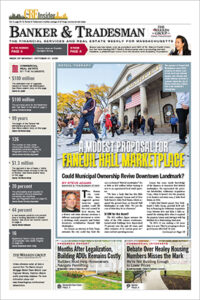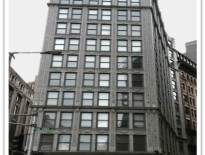As it ramps up public outreach for Boston’s first master plan in 50 years, Imagine Boston 2030 is giving residents a way to participate in the discussion on the go – and not only those who can afford an iPhone.
The city agency has contracted with Textizen, a San Francisco-based startup, on a platform that allows residents to respond to survey questions on improving quality of life and what issues they think the city should focus on in the new master plan.
“We were looking for a tool to allow us to leverage the technology we carry in our pocket every day,” said Sara Myerson, executive director of Imagine Boston 2030. “We explored different tech platforms and Textizen just rose to the top as one that is flexible and can be accepted by many.”
The platform is compatible with smartphones, but people with basic cell phones can text letter-coded survey responses to 617-860-3745. The platform is part of the city’s attempts to gather public responses outside of the traditional community meeting format.
“What we are asking is you text the letter of your response to our number and we start a conversation with you and dialogue back and forth,” Myerson said.
The current survey asks residents how the city can best improve their life in 2030 with the following options:
- A) Housing I can afford
- B) Safer neighborhoods
- C) Better transportation options
- D) Quality education for all
- E) A more environmentally-friendly city
- F) Great parks and public spaces
- G) A more innovative and creative city
- H) Expanded job opportunities
- I) More vibrant neighborhoods
A Spanish version of the survey also launched last week.
The year-long contract with Textizen totals $17,900, with an option for a one-year extension.
The community engagement process will continue through next year, with a draft strategic vision plan expected to be released next summer. The final citywide plan would be approved in spring 2017.
The Boston Redevelopment Authority in August selected HR&A of New York as lead consultant for the $2.8-million, two-year process. The study will look at future development patterns, transportation, climate resiliency, arts and culture, public health and inequality. HR&A is partnering with Boston-based Utile Inc. Architecture + Planning, a regular consultant to the BRA.





